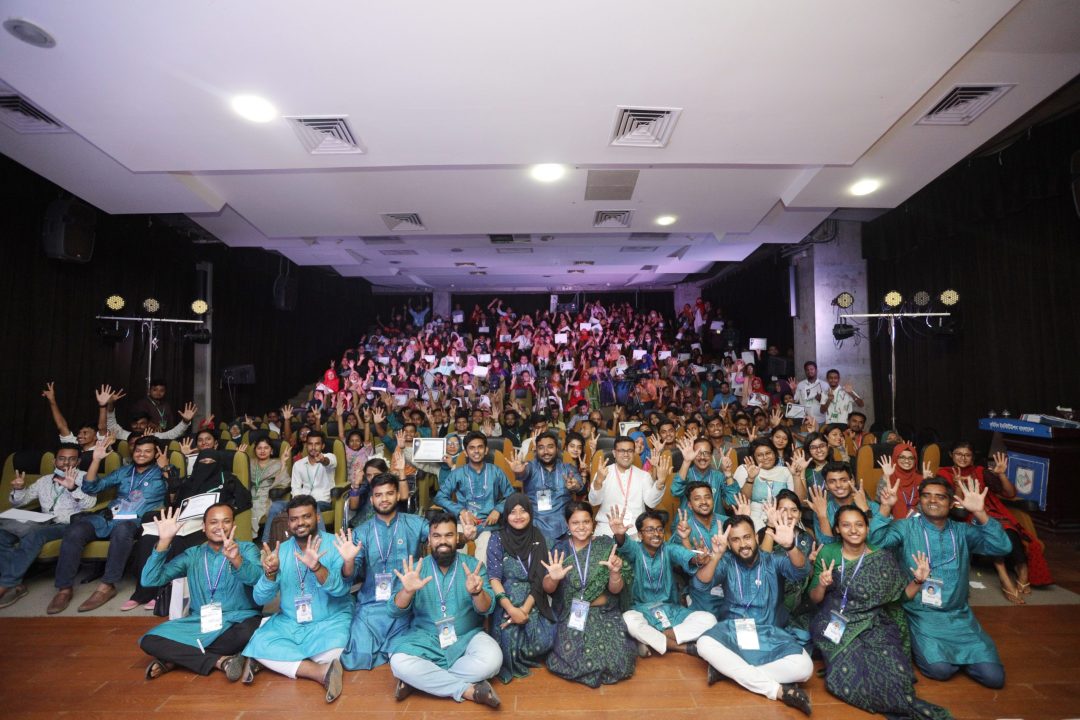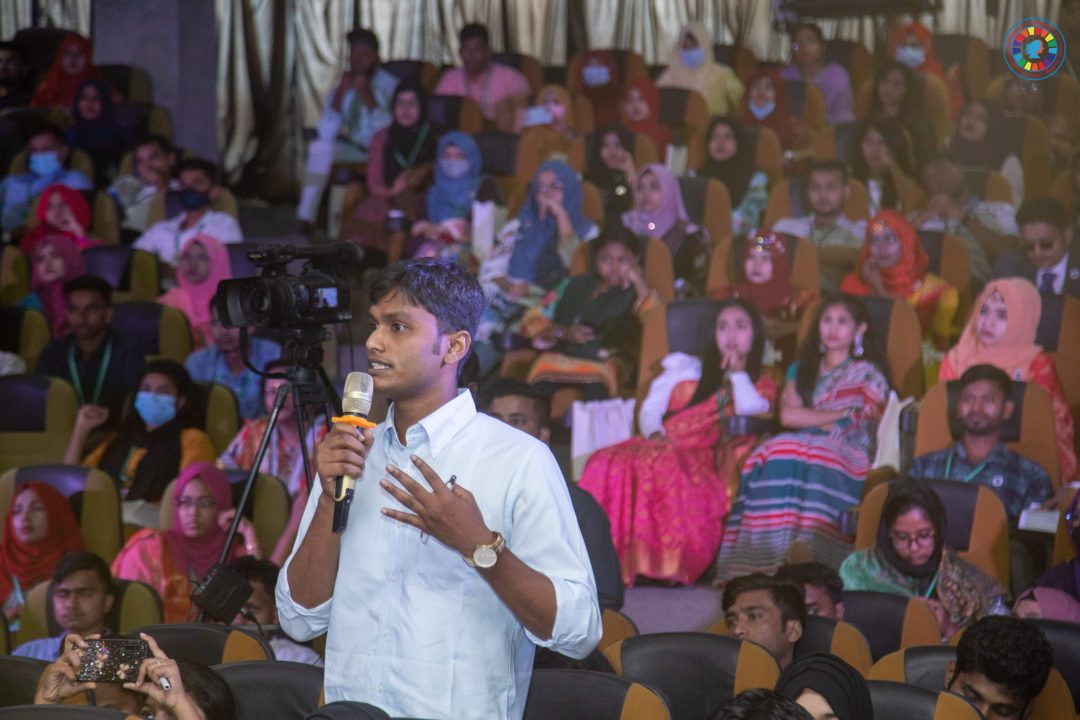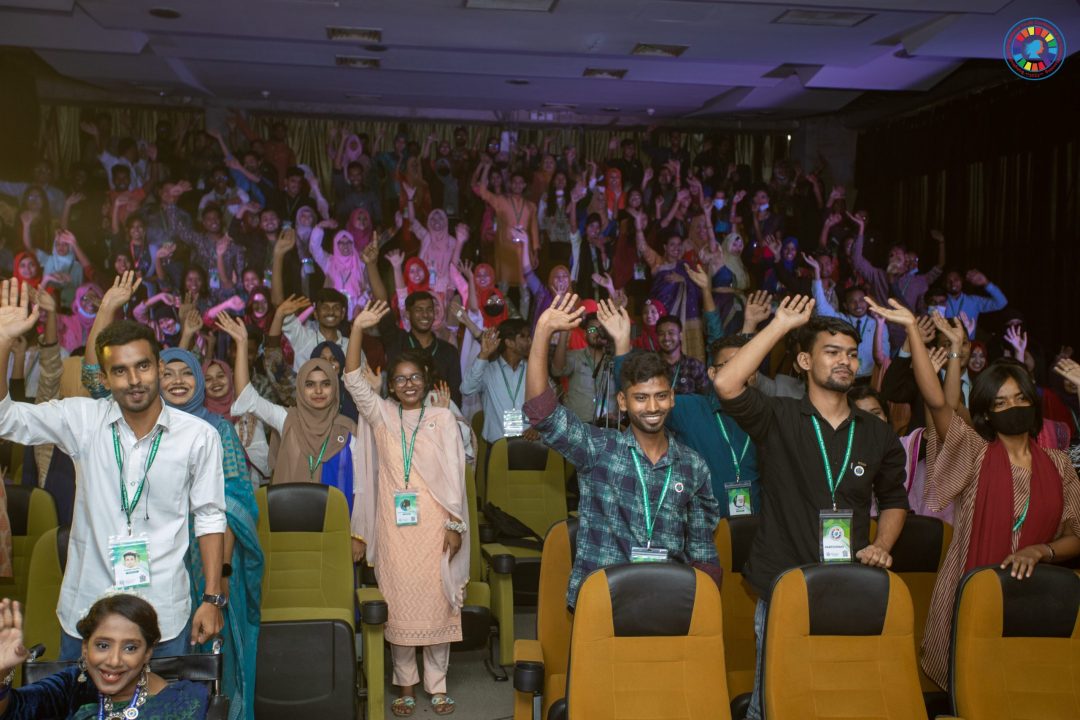Sexual and Reproductive Health and Rights are basic human rights, and all people should have equal access to SRH services and education. Currently, the Bangladesh government has policies and programs focusing on certain aspects of SRHR. However, the issue of SRHR in Bangladesh remains a difficult issue to discuss openly, particularly among adolescents despite its importance in this delicate stage of their life.
Many young people in Bangladesh do not have access to adequate information about their sexual and reproductive health rights (SRHR) because of a strong social and cultural taboo around the issue which causes a pervasive silence. As a result, most adolescents enter into marriage and pregnancy without any adequate preparation. The current national school curriculum contains only minimum information about SRHR and often teachers are reluctant to teach even this. It leaves a vacuum for young people especially adolescents about proper information on sexual health and reproductive rights.
It impacts in various ways among both married and unmarried young people. According to the Bangladesh Demographic Health Survey 2022, one in four (24%) women aged 15–19 have ever been pregnant, and almost one in five (18%) have had a live birth.
We are concerned that, if an integrated approach of SRH education and advocacy for birth spacing using access to effective contraceptives among youth and adolescents, and access to reproductive health commodities for youths is ensured, the unmet goals in population control can be approached in a more effective way, and it is only possible if youth-led advocacy efforts amplify the information at the community level. To reach that, the proper channel is creating a sustainable space for young people to focus on sexual and reproductive health education, friendly services, and human rights-based advocacy including family planning issues in the country.
To ignite the process, SERAC-Bangladesh initiated the Bangladesh 1st National Youth Conference on Family Planning (BNYCFP 2016) on September 6, 2016, and it was followed by four other successful conferences in 2017, 2018, 2019, and 2020 in Dhaka.
The conferences have been attended by Ministers, MPs, high-level government officials including the Director-General for Family Planning, UN officials, health experts, academicians, NGOs, advocates, and youth representatives from across the country.
Since 2016, the conference has brought together a large number of local, national, and international agencies including UNFPA, UKAID, Directorate General of Family Planning, USAID, Partners in Population and Development (PPD), Pathfinder International, Options, IPPF, Marie Stopes Bangladesh, Population Action International, EngenderHealth, Ipas, Plan International, BRAC University, Family Planning Association of Bangladesh (FPAB), Reproductive Health Supplies Coalition, and Health21.
The event is focused on advocacy for including young people at the heart of every discussion around policies and programs on sexual and reproductive health and rights, and implementation of Sustainable Development Goals on reproductive health and gender equality in Bangladesh.
This conference had a background of organizing the youth pre-conference at the International Conference on Family Planning in January in Bali, Indonesia in January 2016, and organizing youth corner at the 12th International Congress on AIDS in the Asia and Pacific (ICAAP) in March-2016 in Dhaka.
[i] National Institute of Population Research and Training (NIPORT) [Bangladesh], Mitra and Associates [Bangladesh], ICF International. Bangladesh Demographic and Health Survey 2011 [Datasets]. BDIR61.DTA. Calverton (MD): ICF International; 2013.







